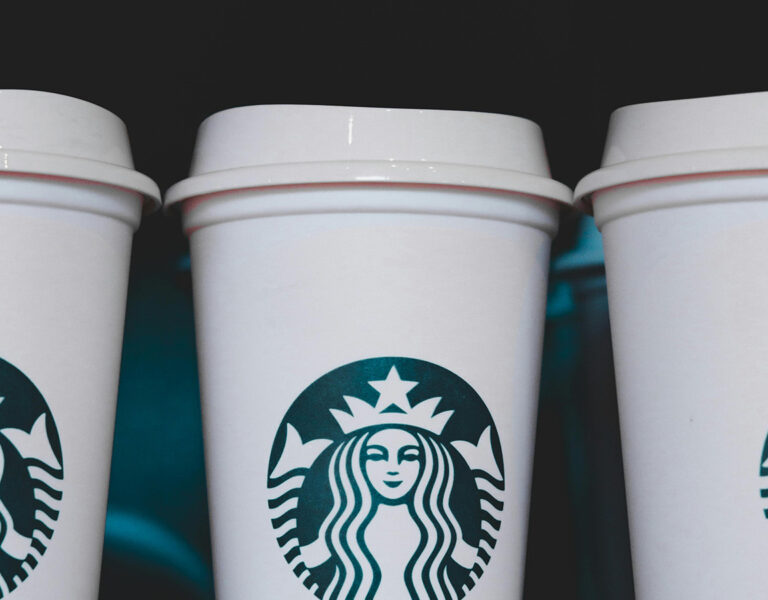In today’s volatile business environment, activist investors and management consultants often push companies toward sameness through benchmarking. This article explores how leaders can resist this pressure and instead embrace unique strategies that drive real innovation and sustainable growth.
Companies beware: activist investors and management consultants are stalking the land.
Business and economic conditions are ripe for these outsiders to come in and tell leaders how to run their businesses. And they do need help. In the wake of the pandemic, many large companies are struggling to either revive growth that was disrupted by lockdowns or maintain the revenue bump they got from strong consumer demand. Adding to these difficulties, inflation and high interest rates have made consumers more selective about spending.
Starbucks, for example, was hit hard by the pandemic and has been struggling to find its footing ever since. With its sales and stock price slumping this year, activist investors piled in and were instrumental in getting the company to replace its short-lived CEO Laxman Narasimhan.
One of those same activists, Elliott Investment Management, has gobbled up nearly 11% of Southwest Airlines’ common stock and is pushing for big changes at the budget carrier. Where activist investors smell trouble, consulting firms aren’t far behind with their PowerPoint presentations and prescriptions for synergies.
‘Strategy By Benchmarking’ Isn’t The Answer
To be sure, Starbucks, Southwest, and several other big companies are sorely in need of change. Starbucks is losing the special bond with customers that made it a beloved “third place” apart from home and work. Southwest, the innovative airline that changed flying with its low-cost fares and focus on customer experience, has been hit by rising expenses, sagging profit margins, and the fallout from its 2022 tech meltdown. For its part, Nike’s stock plunged this summer to its lowest point since the start of the pandemic, hurt by rising competition and strategic missteps.
But it’s highly unlikely that Elliott or McKinsey has the answer. It might buy some short-term stability by calming investor nerves, but over the longer term, it guarantees a company will be swimming in a sea of sameness with its competitors. That’s because both activists and consultants rely too much on benchmarking.
The “strategy by benchmarking” approach boils down to copying everyone else—a recipe for mediocrity. Great companies do the opposite—they play to their unique strengths and create unique experiences that no one else can.
Take the plan that Elliott has put on the table for Southwest. Large parts of its “Stronger Southwest” presentation focus on comparing Southwest’s recent performance unfavorably with the big three airlines—United, American, and Delta. If only Southwest could emulate those guys everything would be fine, seems to be the message.
The problem is that United, American, and Delta are virtual carbon copies in terms of what it’s like to fly with them. They barely offer anything different, whereas Southwest has outperformed its competitors for decades because it offered a genuinely unique experience that customers loved. And that differentiation has paid off. Between 2000 and 2019, Southwest beat the average annual share price performance of United and American by about 8%.
The fact that Southwest has performed worse than the big three recently has more to do with high fuel costs squeezing its margins than anything fundamentally wrong with its values and business model. Yes, Southwest needs to change. But that change should involve reconnecting with what makes it great rather than becoming just another big airline.
Swim Against The Tide
Narasimhan’s attempt to revive Starbucks failed in part because he rolled out a standard playbook instead of refocusing the company on its unique value. His plan to “attack” customers with coupons and discounts made Starbucks seem no different from any other fast food chain. That approach felt like a cheap trick for a company whose connection between employees and customers was so strong that a barista once donated her kidney to a sick customer.
The push to be like everyone else isn’t confined to Starbucks and Southwest. HBO’s fall from being the premier platform for quality shows to an also-ran offers a cautionary tale against copying others. After it took over the business, AT&T pressured HBO to become more like Netflix. Key leaders moved on. Quality declined. And by the time HBO’s streaming service was rebranded with the nondescript name of Max last year, over 2 million subscribers had left. Meanwhile, the few streaming platforms that look healthy are the ones doing something unique. AppleTV+ is gaining subscriber share with a smaller, higher quality line-up of shows than its rivals. It’s succeeding by swimming against the tide of sameness.
The Need To Think Different
Of course, some companies are just structurally broken and may benefit from the kind of emergency surgery that activists and management consultants provide. But that’s not the case with fundamentally great businesses like Starbucks and Southwest.
So how do you manage this? Leaders of companies under external pressure need to be able to communicate a bigger vision to The Street, explaining why it makes sense to reject the usual advice and how a different approach creates more value. That approach should be based on a deep understanding of the value they give to their key stakeholders rather than top-down prescriptions drawn up by hired-gun executives. Traditional management consultants are good at rigorous analysis, but they lack the one quality that’s essential to turning a company around: creativity. They’re experts at comparing existing options rather than creating new ones.
When Steve Jobs returned to lead struggling Apple in 1997, many smart business “experts” urged him to emulate other tech firms like Dell and HP by splitting off the hardware and software businesses. He ignored them and did the opposite because he understood that Apple needed to be one company. Only then could it do what it’s great at—creating amazing customer experiences. He launched the “Think Different” campaign to redefine its identity and stripped the company’s offerings down to just four products.
In fact, Apple and other Big Tech firms have continued to thrive by “thinking different.” Alphabet, Meta, Amazon, Microsoft, and Apple are all wildly successful. And each is remarkably different from one another in their cultures, business models and areas of strength. That’s in part because several of them are still controlled by their founders so they don’t have to put up with bossy interlopers.
To be fair, not everything that outsiders say is bad. Starbucks, for example, now has a chance to renew itself under incoming CEO Brian Niccol, the former boss of Chipotle. He’s a promising choice, with a proven record of driving innovation and creating great customer experience at the Mexican food chain. Starbucks shares surged over 20% on the news, erasing all their 2024 losses.
But Niccol won’t succeed by replaying the Chipotle playbook. With any luck, he’ll spend a little bit of time digging in and finding out what makes Starbucks great and unique. He may discover that there’s a lot of great stuff left on the counter.

 Dev Patnaik
Dev Patnaik


